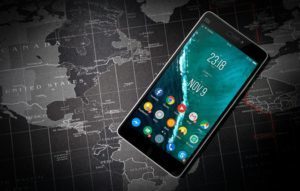 Image Courtesy of Pexels
Image Courtesy of Pexels
Event Recap: National Security, Telecommunications and 5G – Using All Tools to Stop Cyber Espionage
The American Security Project brought together foreign policy and cybersecurity experts on Capitol Hill to address the security concerns derived from the pending Sprint and T-Mobile merger and its relation to Huawei-produced equipment. Both telecom carriers are foreign-owned, sparking questions whether the U.S. national security risk is worth the trade-off for rapid 5G deployment. The panel of speakers included former House Intelligence Committee Chairman Mike Rogers, Rear Admiral David Simpson, Truman National Security Project’s Interim Executive Director Bishop Garrison, and Senior Foreign Policy Advisor to Senator Edward J. Markey, Zachary Hosford moderated by American Security Project’s fellow for public diplomacy Matthew Wallin.
Huawei is the largest telecommunications vendor and the second largest producer of smartphones globally. The telecom giant is steadfast in being at the forefront of 5G development domestically and abroad. The Chinese greatly influences Huawei and heavily subsidizes the company so that it is more accessible and attractive to foreign consumers; attributing to their large portion of the global telecom market share. The upfront cost to the Chinese is minimized by the value of the data and access they will have in the future.
The 13 indictments filed by the U.S. Department of Justice exposed this underlying authoritarian influence of the Chinese government. In its quest to achieve 5G global dominance, the Chinese telecom giant allegedly incentivized its employees to steal intellectual property, engage in money laundering, and spy on its competitors.
Despite these allegations, T-Mobile and Sprint’s proposed merger has created discussion about their possible deployment of Huawei-produced 5G equipment in networks overseas, thereby inciting U.S. national security and privacy concerns. By extension, Garrison and other members of the panel explained the risk of espionage on U.S. citizens or military personnel traveling overseas who may use 5G networks with Huawei-supplied equipment.
Rogers, who has participated in a joint investigation into Huawei, contends that the security threat that Huawei imposes warrants an executive order to prevent the merge. Other speakers on the panel felt strongly that congressional oversight is enough to prevent corporate mergers with bad global actors like Huawei.
Rogers explained that the telecom tactics used to commit espionage can exist in the hardware or software of the devices and is only traceable when it is accessed to acquire information; making it difficult to pinpoint the potential threat. Common anomalies that exist within the phones code further complicates its discovery, “…once they’re in, they’re in. You’re not getting them out… any business that you do internationally…you bring that infection with you.” They implored that foreign carriers should break away from Huawei as well.
When asked about measures that could be taken to mitigate espionage activities in mobile networks and equipment, he expounded that it is practically impossible. Static testing of the equipment doesn’t work and testing one phone won’t certify the security of all the phones in the country. The “ecosystem” surrounding these devices would have to be analyzed and assessed; but mitigation has its limitations.
To help counter the dominance of Huawei and reduce the risk of espionage, the panel contended that the U.S. needs to invest and develop its own 5G system and weaken the dependence on phones composed of Chinese parts. Simpson and Garrison suggested that the government should incentivize the growth for domestic telecommunication production, to obtain leverage in the 5G race. Simpson contested that there must be strict oversight on all levels of the supply chain, but that the U.S. shouldn’t write Huawei off entirely. Huawei owns a significant market share of the Asian Pacific; therefore access to telecom services within that region would be difficult if the U.S. cuts ties with it altogether. He urged that corporate accountability at all levels can help mitigate this issue. Garrison and Hosford concurred that protectionism and isolationism isn’t the answer. There will be a time when the U.S. will need to work with China in the future on foreign policy issues; therefore that relationship must be maintained.
Keeping this in mind, there was a consensus with the panel that national security concerns and trade interests should be handled separately.
In the end, Simpson expressed that taking a strong stance on addressing these security concerns is the morally right thing to do. Privacy is a right that is deeply valued in the U.S. and risking that right for business purposes will lose American’s trust. Hosford added that the Hill is watching China very closely; however, there is still a lot of work to be done before we can adequately protect our digital privacy.





